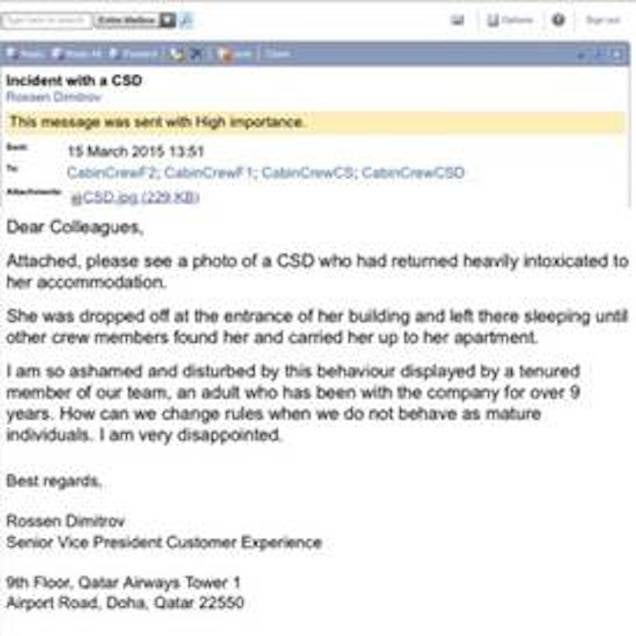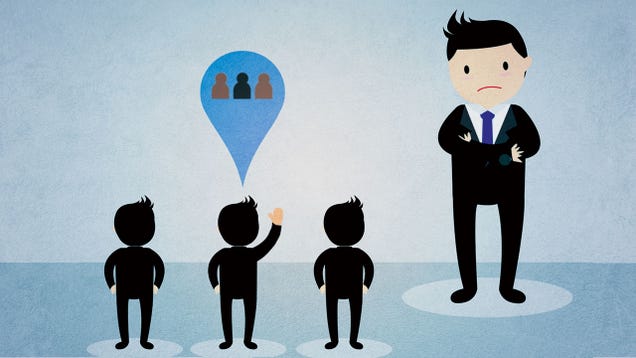![The Real Reason Kathy Griffin Left Fashion Police]()
Comedian Kathy Griffin is taking a stand. After a seven-episode stint, she quit E!'s reliably savage roundtable gabfest Fashion Police with a socially conscious flourish, calling herself a feminist whose positive message didn't "fit with the creative direction of the show."
But it may be a bit less selfless than that. A source tells me Griffin's come-to-Jesus moment was a last-minute attempt to save face after realizing she was about to be fired over diva behavior on set.
In a message posted to Twitter on Friday (written with assistance from Lena Dunham, Griffin revealed Monday on The View), Griffin explained her departure was rooted in her ideological conflict with the show's. It read in part:
Listen, I'm no saint – I'm a feminist AND a Gurrrrl who loves an offensive joke or a well-timed barb and you will find plenty in my repertoire. But I do not want to use my comedy to contribute to a culture of unattainable perfectionism and intolerance toward difference. I want to help women, gay kids, people of color and anyone who feels underrepresented to have a voice and a LAUGH. That has been my platform for decades and my body of style does not fit with the creative direction of the show & now it's time to move on.
In the days since posting that, she has made similar comments in her standup, on The View, and to Howard Stern. Even before announcing her departure, she was already making a show of turning over her new leaf. In a Chicago Sun-Times Splash profile that was posted on the internet Thursday, Griffin spoke of a personal evolution:
…There is a chasm of difference between making a joke about Miley Cyrus wearing duct tape over her nipples in public — which I think is totally fair game — and simply looking at a photo of her on a red carpet and saying she is ugly or a bad singer or pathetic or something like that…Look, God knows my — how shall I say? — repertoire over all these years on TV and live touring has used some language I wouldn't use today, but people just aren't into that stuff anymore and I get it. Name-calling and alliteration with no comedic context is simply the lowest hanging fruit.
To hear Griffin tell it, she took the gig replacing Joan Rivers as Fashion Police center star and then realized that it wasn't the job for her (she admitted as much in the aforementioned Stern interview).
But according to a source close to the show who spoke with me on the condition of anonymity, Griffin's gig was "doomed from the start." She alienated her co-panelists, demanded the termination of some of the show's longtime employees, and was otherwise "obstinate"—and her current redemption tour is face-saving attempting, something seemingly corroborated in her email plea for a public showing of support from her celebrity friends over her supposedly brave decision to exit the E! staple ("I am asking for your support via Twitter, etc. IF you are comfortable. I admire you & your work and hope that you can stand by me").
Maybe it was doomed before it even got a chance to start. In her March 1 column in the New York Post titled "Fashion Police a Mess Without Joan Rivers," Rivers's personal friend Cindy Adams predicted the imminent ruin and provided this flashback, which is jaw-droppingly opportunistic even by Hollywood standards:
Kathy Griffin — talented, able — made a grab for the job while Joan lay on life support. I know. I was right there in her hospital room holding my forever friend's hand.
However, Griffin and an E! spokesperson have denied it. Nobody will confirm this, so don't try.
My source confirmed Griffin's maneuvering—"Kathy literally called E! the day after Joan went into a coma and said, 'If she doesn't make it, I'd like the job"—something Adams first reported days after Rivers's death last September, albeit without naming Griffin:
Two different people report that, while Joan was still comatose, another comedienne already pushed for her E-TV Fashion Police show. Nice, right? No business like show business. Replacements begin when a star coughs.
Despite her name not being mentioned, Griffin responded to the allegation days later, telling Larry King that the rumor was "disgusting" and "not true." Furthermore, Griffin claimed, "I would never take Joan's job. Joan and I had a different style."
"Never" arrived on December 1 when Joan Rivers's daughter/Fashion Police executive producer Melissa Rivers announced that Kathy Griffin and stylist/reality star Brad Goreski were joining the lineup. Goreski replaced four-year Fashion Police vet George Kotsiopoulos, which according to my source, was a decision bearing Griffin's influence.
"She had George [Kotsiopoulos] fired because she didn't want the gay guy that had been laughing at Joan's jokes all these years sitting next to her," my source said. "She wanted to bring her own guy in that would laugh at her jokes, and she knew Brad Goreski because they both had shows on Bravo."
Griffin also reportedly had her former friend Tony Tripoli fired from the show, according to a post on Kenneth Walsh's Kenneth in the 212 blog last week that my source confirmed. Tripoli served as a producer on the show starting in 2002, and became the show's head writer in 2010. Walsh writes:
In addition to the hypocrisy of it all, what Kathy also isn't copping to is the fact that her age-old "Mean Girls" vendetta against former best pal Tony Tripoli — who was Rivers' right-hand man and the show's hilarious head writer — led her to get him SHITCANNED the second she joined the fold. (You may recall Tripoli and Dennis Hensley as Griffin's gay BFFs and joke writers she used to hang out with at Chevys Fresh Mex in the Valley on season one of "My Life on the D-List.") With Tripoli ousted, Griffin then reportedly refused to put in any work on the show. While Rivers is said to have had about 20 jokes written and at the ready for every situation, Griffin apparently thought she could waltz in and "wing it" and she simply BOMBED. (It's not about being mean, it's about being funny.)
That was posted last week; on yesterday's episode of The View, Griffin that she diverged from Fashion Police's style by being more "improvisational" in nature as a comic. She told Stern that producers "actually said, 'If you want, you can clean house.' I wasn't looking to put anybody out of work at all."
That's not how people on the show remember it. "Kathy from the start thought it was going to be The Kathy Griffin Show and not a four-person panel," my source—one of many people Griffin pissed off during her brief tenure—said. "Kathy doesn't do teams. She's always been a solo performer and she's not interested in being on a team. So right from the start, she was treating Giuliana [Rancic] and Kelly [Osbourne] like they were her staff."
That treatment, my source says, led to tension.
"Brad was the only one that would speak to her during the tapings," my source said. "By the time they got to [her] second episode, Giuliana, as soon as they got to commercial, she just looked down at her phone. Kelly busied herself or put her hands in her lap and just looked at her shoes. For being such a feminist, it's amazing that the first thing that [Griffin] did was alienate the two women on her team. All of the producers were like, 'How are we supposed to be funny when there's this stench of hostility in the air?'"
The comedy was also lost on critics like the Daily Beast's Tim Teeman who wrote that Griffin's January 12 debut on the show was timid, unfunny, and lacked sharpness. Radar reported that Griffin was upset over the backlash she received, which stemmed in part from her calling Amal Clooney "annoying."
Much louder backlash came after the show's Oscar-themed episode that aired February 23. On it, Giuliana Rancic said that teen Disney star Zendaya's dreadlocks made her look like she smelled like patchouli "or weed." Kelly Osbourne unleashed a string of tweets in response to the comment (and the rumor that it was she who suggested Zendaya smells like marijuana first). Three days after the tweet rant, E! announced that Osbourne was departing the show.
"Kelly was going to be fired because she was tweeting so much during the Zendaya issue and really pouring gasoline on it," says my source. "The network was like, 'We're a team here. You can't be shitting on Giuliana like this when you're on the show.' They called her and told her they were going to end her contract that that there was a monthlong hiatus [coming up] and that they should form an exit strategy. And then she called the press and told them that she quit."
E!'s statement followed a TMZ report that first announced Osbourne had quit. If my source is correct, it means Osbourne's departure set a precedent for E! allowing an employee to save face by appearing to quit a job from which she was about to be fired. Griffin then followed suit, and received a tweet of praise from Osbourne.
"The way [Griffin is] getting out of Fashion Police is genius," says my source. "She heard that there were meetings being held at E!, and put two and two together and realized she was going to be fired. She beat them to the punch and is framing it in this, 'I'm a feminist/gay activist/I would never say anything bad about another woman' sort of idea which is insane, 'cause anyone who's ever seen her standup knows that she's been getting checked for bullying people for 25 years."
On Friday, March 13, TMZ reported similar claims that Griffin's hero moment was pure spin to deflect her imminent firing (the turning point supposedly happened with Griffin was pitched a feature intended to evaluate the sluttiness of celebrities' outfits called "Whore Score"). Thing is, even comments Griffin made on her brand of comedy as recently as Monday's episode of The View don't hold up to scrutiny. On the show, she said, "I wouldn't hold up a picture of Oprah and say, 'She's fat, good night!' I would say, 'Oprah said, "John Travolta's here!!!"' You know, like, it's the behavior…the stuff to play with, and that's really what I do."
Griffin's 2006 standup special Strong Black Woman featured an extended riff on Oprah Winfrey's weight. It's not, "She's fat, good night!" It's, "She's fat, and I'm going to make your night great by providing a dozen jokes about it." It features Griffin's trademark cocktail of affection, derision, and schadenfreude. It's an intricate fat joke, but a fat joke all the same.
But that was almost 10 years ago, right? Griffin claims to have changed her ways as the years have passed, and god knows that just about everyone could be made to look like hypocrites by comparing past words to later, more mature mindsets. Michael Musto reports for Out that at Griffin's Atlantic City show on Saturday, she continued her campaign of social responsibility (or damage control, depending on your perspective). Musto says Griffin told the crowd:
I'm not down on putting down photos of women. I'm 54, a feminist, and it's not what I do. If you want me to make fun of 'Justine' Bieber pissing in a bucket, fine, but I'm not gonna say Selena Gomez is ugly. I'm not gonna look at a picture of Lena Dunham and go, 'She's fat. Good night, everybody'. I'd like to make fun more of celebrities' behavior.
And then minutes later, Griffin told a fat joke:
When discussing the woman from My 600-lb Life, Kathy had to tread carefully because, after all, she just publicly rejected the chance to make fun of women's looks on a TV show. So she sort of took a squeamishly positive approach, admiring the gal for having a skinny boyfriend who'll respond to demands like, "Come clean my folds!"
Some change.
Fashion Police was supposed to return March 30, but E! announced last night that the show was being put on hiatus until September. "We look forward to taking this opportunity to refresh the show before the next awards season," reads part of the network's statement. Before this announcement, my source told me that there's no way E! will cancel the show for good.
"They already have offers out to new talent," said my source. "They have too much invested in it and the name Fashion Police still means something, still has a value, so they have to figure out some way to continue it. It's not like they have five other hit shows that they can put in its time slot."
If you know more about the behind-the-scenes chaos at Fashion Police, I'm all ears: rich@gawker.com.
[Image via Getty]

































